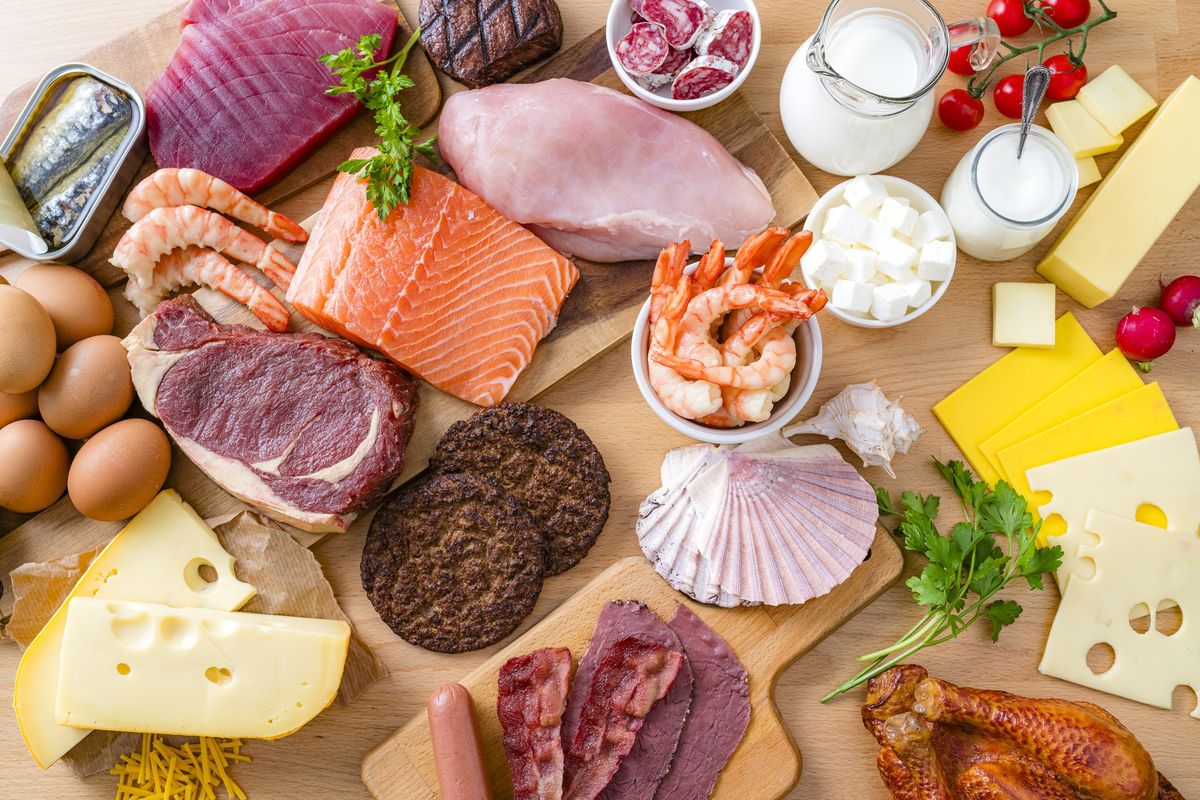The sports drinks category is experiencing a transformation, with convenience retailers witnessing both significant challenges and emerging opportunities as consumer preferences shift towards more functional, health-focused alternatives.
The numbers tell a stark story: sports drinks sales have plummeted by 21.2 per cent to £205 million in the convenience channel, according to the 2025 Carlsberg Britvic Soft Drinks Review, driven largely by the spectacular collapse of Prime Hydration, which declined by £70 million across its sports and energy ranges.
At Symbols and Independents specifically, the sector has contracted by 24.3 per cent in value and 14.7 per cent in volume, reflecting a fundamental shift in what consumers are seeking from their functional beverages.
However, this downturn masks a more nuanced picture. As Edward Horne, buying manager for chilled drinks at Ocado Retail, observes: “We're seeing a clear shift, driven by Gen Z shoppers who are choosing functional drinks as part of their daily routine, whether that's swapping out regular coffee for a mushroom blend or substituting alcohol with a healthier alternative.”
The data supports this transformation. Functional drinks sales have surged 54 per cent year-on-year, with two in five consumers now purchasing functional drinks several times monthly – rising to nearly two-thirds of Gen Z. Crucially for the sports and protein market, Ocado's search data reveals that searches for 'protein drink' and 'protein shake' are up 140 per cent and 68 per cent respectively, as busy shoppers seek convenient ways to boost their health on the go.
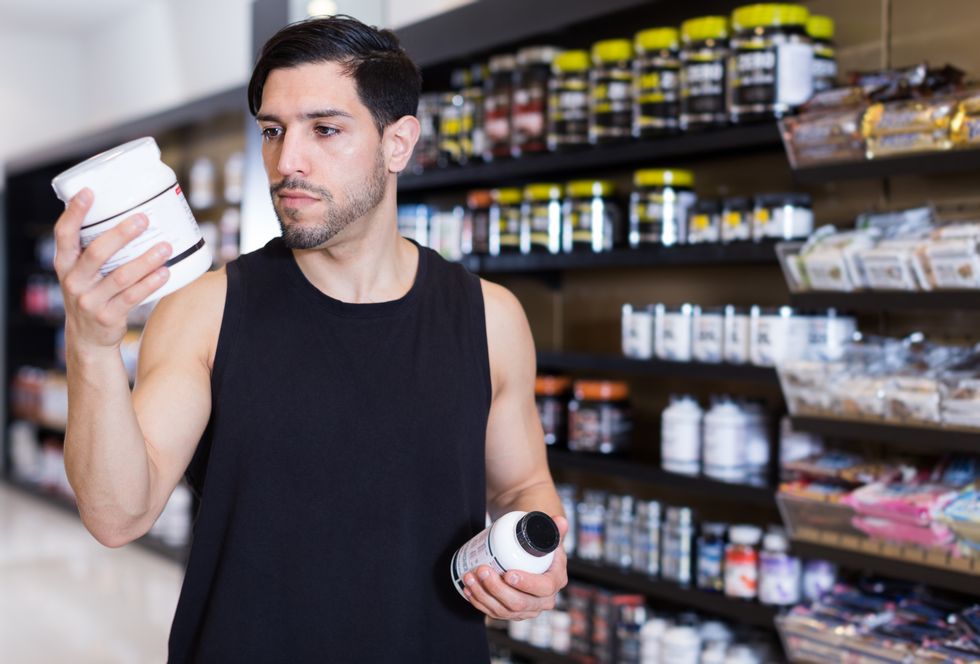
This shift reflects convenience retail's unique position in the market. With 32 per cent of food and drink sales through convenience stores motivated by the need for fuel – a 71 per cent overtrade versus the rest of retail – these outlets remain perfectly positioned to capitalise on evolving consumer demands. Glucose, sport and stimulant drinks still account for £1.67 billion in convenience sales, demonstrating the sector's enduring relevance.
The challenge for convenience retailers lies in adapting their ranges to meet these changing preferences. While Prime's dramatic fall – from £112 million revenue in 2023 to just £33 million in 2024 – signals the end of hype-driven purchasing, it creates space for more sustainable, health-focused brands to establish themselves in this evolving marketplace.
The celebrity factor
In the wake of Prime's spectacular decline, the sports drinks sector is witnessing a notable shift away from social media influencer-driven brands towards products backed by established sporting celebrities. This transition represents more than just a change in marketing strategy – it signals a realignment towards credibility, performance credentials, and sustainable growth over viral moments and hype cycles.
Where Prime leveraged the social media followings of YouTubers Logan Paul and KSI to drive initial awareness, today's successful launches are anchored by genuine sporting achievements and authentic performance credentials. This shift represents a change in how manufacturers are approaching the category, with established players leveraging proven star power and innovative flavour profiles to differentiate themselves in an increasingly discerning marketplace.
Football stars are emerging as the category's most powerful ambassadors, with brands recognising the unique appeal these athletes hold for UK consumers. Lucozade Sport's collaboration with England midfielder Jude Bellingham exemplifies this trend, launching Lucozade Sport Ice Kick with significant marketing investment putting Bellingham front and centre to drive sales.
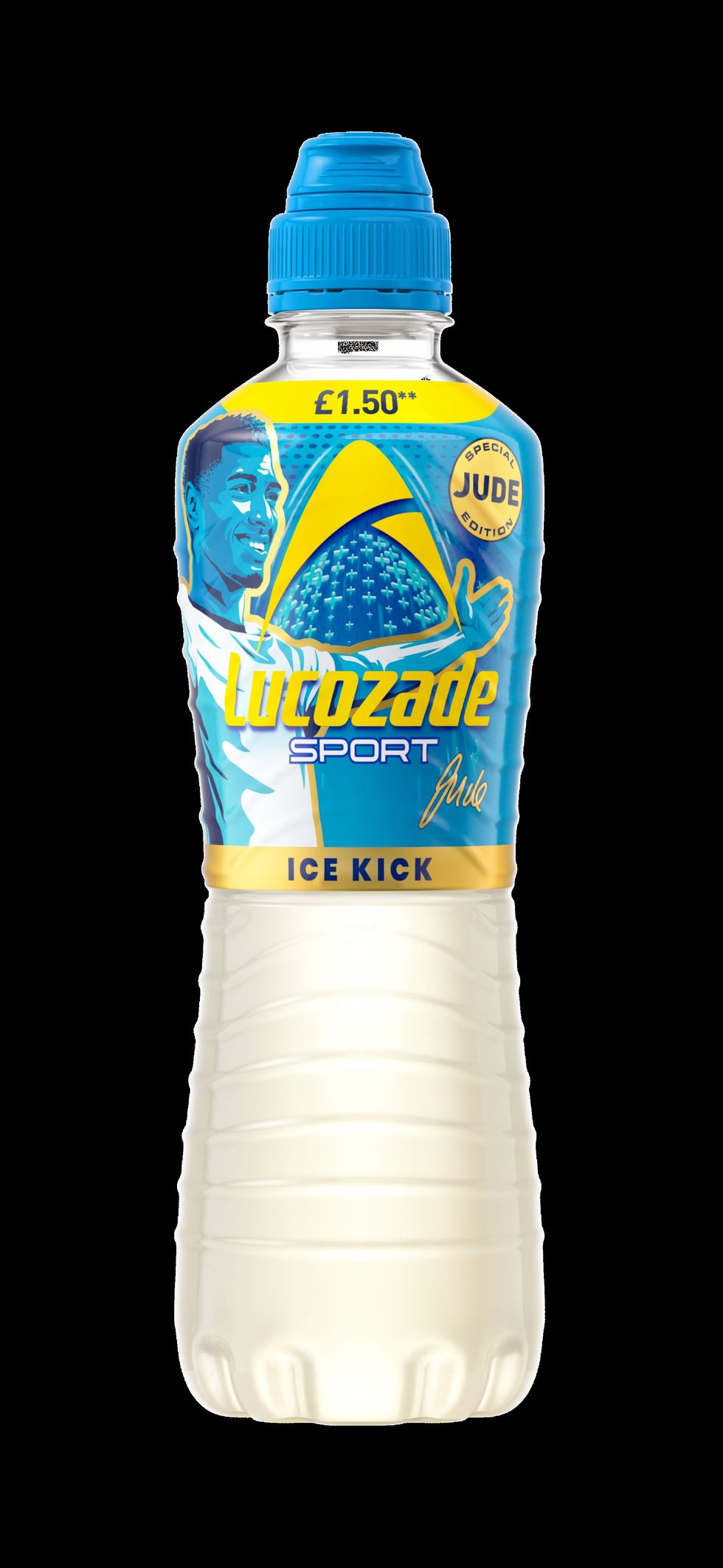
Tom Bell, Marketing Director at Suntory Beverage & Food GB&I, emphasises the strategic importance of these partnerships: “We have loved working closely with Jude to bring this icy new team member to chillers this season. This refreshing new addition to Lucozade Sport's range is set to be a huge hit with shoppers and football fans, and our proven track record of launching new flavours with our sports stars means we're confident that retailers will see it kick off an unbeatable summer of sales!”
Taking this approach to its logical conclusion, MÁS+ by Messi represents perhaps the most significant celebrity sports drink launch in recent years. The brand, developed directly with Lionel Messi, sold out online in less than an hour at launch and has since secured exclusive distribution through SPAR stores for its UK launch in March.
Jeremy Kanter, Global Chief Marketing Officer for MÁS+ by Messi at the time, explained the brand's positioning: “With Leo, we've achieved something almost unbelievable: a delicious tasting drink that has just 1g of sugar, 10 calories per 500ml bottle, and no artificial sweeteners or colours. Better still, its unique blend of electrolytes, vitamins, and minerals absorb rapidly into your body, keeping you well hydrated so you can show up at your best all throughout the day.”
Limited editions and flavour innovation
The limited-edition strategy continues to prove effective in driving category excitement and incremental sales. Boost Drinks has seen substantial success with this approach, with the brand growing 70 per cent in value versus two years ago, partly driven by limited edition releases including Raspberry & Mango in 2023 and Watermelon & Lime in 2024.
The brand's latest Cloudy Lemonade Sport launch taps into the growing authenticity trend, with cloudy lemonade profiles gaining popularity as “trends relating to authenticity and craft becoming more prevalent in soft drinks.”
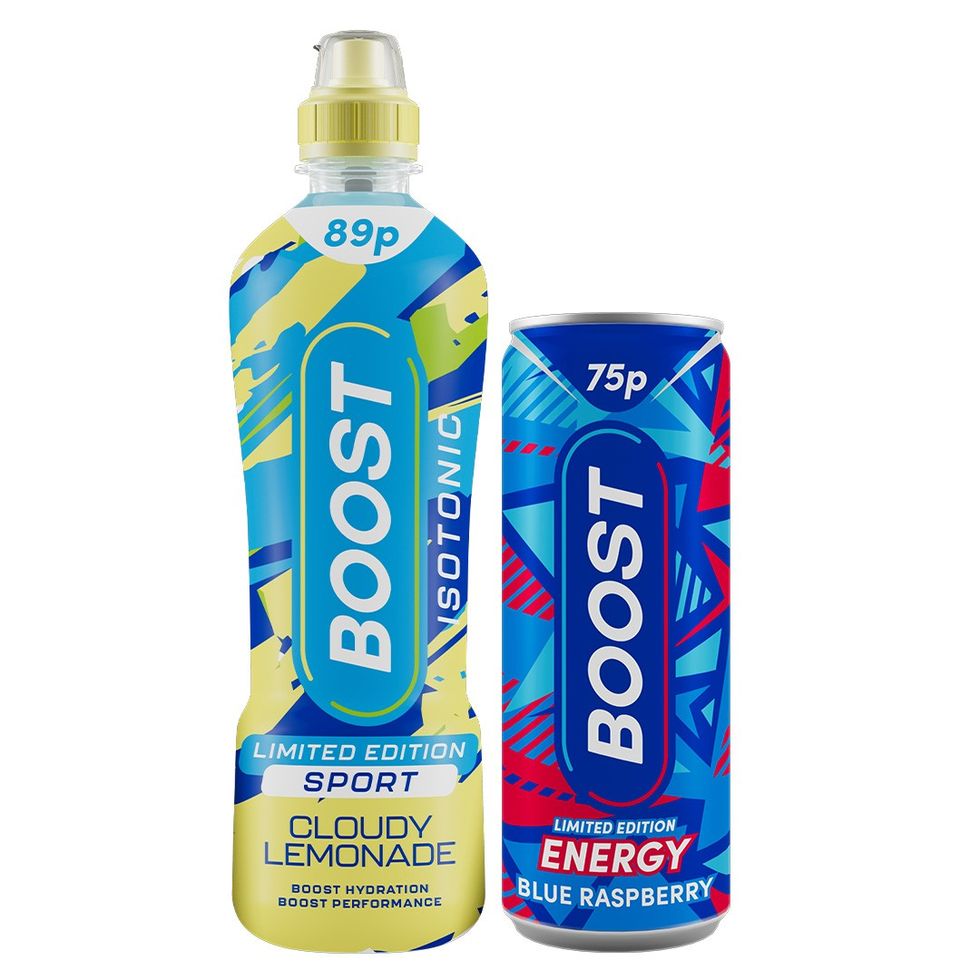
Besides helping brands to provide an increasingly diverse range of drinks, that tap into multiple consumer trends and flavour desires, limited editions create a buzz around the chiller, as shoppers would be eager to try them before they disappear.
Premium pricing remains a key feature, with MÁS+ by Messi commanding £1.75–£1.99 RRP, while maintaining strong rate of sale performance. This suggests consumers are willing to pay more for products that offer clear differentiation through celebrity association, health credentials, and innovative flavour profiles.
Power play in protein drinks
The protein drinks market is experiencing a remarkable surge, with ready-to-drink (RTD) protein shakes growing at an impressive 21.2 per cent [IRI, 52w/e 04.08.24] while the broader chilled yogurt and potted desserts protein segment is expanding at almost three times the rate of the category [Circana, year to end April 2025]. For convenience retailers, this represents a golden opportunity to capitalise on evolving consumer behaviour that's moving protein consumption from niche fitness circles into mainstream daily routines.
Popular ready-to-drink protein brand UFIT is leading the charge with a strategic packaging relaunch designed to broaden its appeal beyond traditional sports nutrition demographics. With a commanding 31 per cent market share, growing to 34.3 per cent in the latest 13 weeks as on September 2024 [Kantar, 52 w/e 01.09.24], UFIT's approach signals a shift in how brands are positioning protein products.
“What sets UFIT apart is our inclusive approach. Unlike many competitors who focus heavily on sports nutrition and target 'young men who gym', we position ourselves as a brand for everyone,” explains Angie Turner, Head of Marketing at Lacka Foods. This accessibility-focused strategy has proven successful, with UFIT's core range maintaining the highest product loyalty among all RTD protein brands, including retailer own-labels.
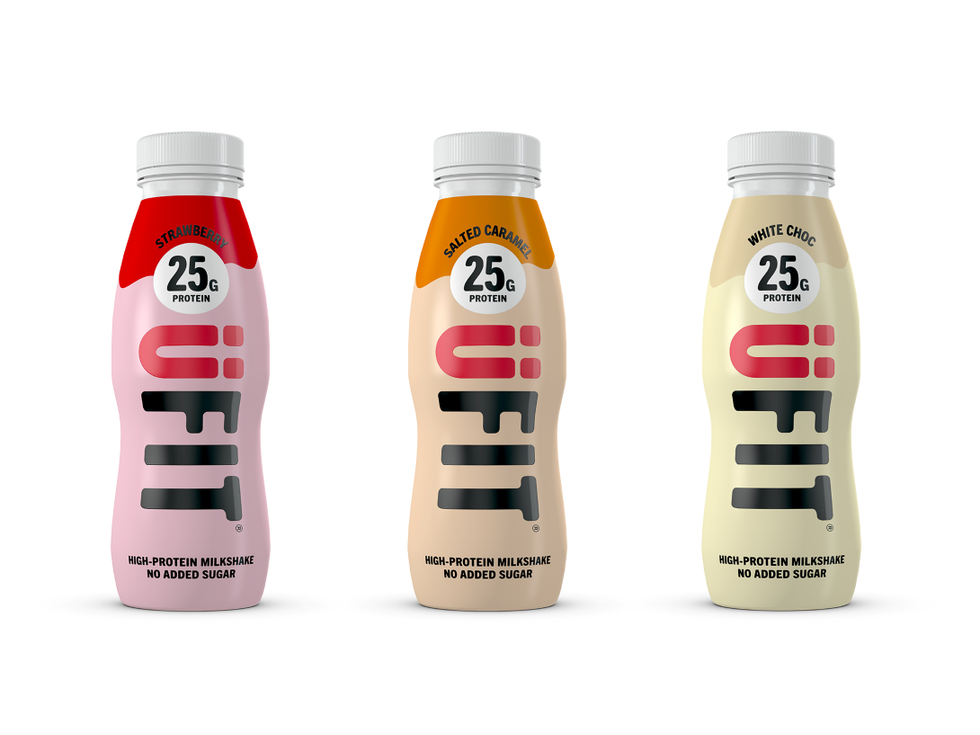
The brand's £150,000 investment in its relaunch includes bold, colourful packaging that consumer insight reveals 58 per cent of customers prefer, specifically citing “the bold, eye-catching colours and clarity of information.” Turner adds: “We listened to what our consumers wanted – less clutter, more clarity – and this refresh does just that. The new look is clean, vibrant and reflects our quality and taste credentials while staying true to our accessible positioning.”
Leading protein bar brand Grenade, meanwhile, is capitalising on the RTD protein market's superior growth rate by relaunching its shake range. With protein shakes outpacing protein bars (21.2 per cent versus 5.59 per cent growth [IRI]), the brand sees significant opportunity for incremental sales, particularly when stocked alongside their bestselling protein bars.
“We're delighted to be bringing Grenade's range of high protein low sugar shakes back to UK consumers,” says Tom Murphy, CEO at Grenade UK. “At Grenade, we're dedicated to offering consumers nutritious, flavour-focussed protein products that can be enjoyed at any time, anywhere, whether that's as a mid-day treat or a workout recovery.”
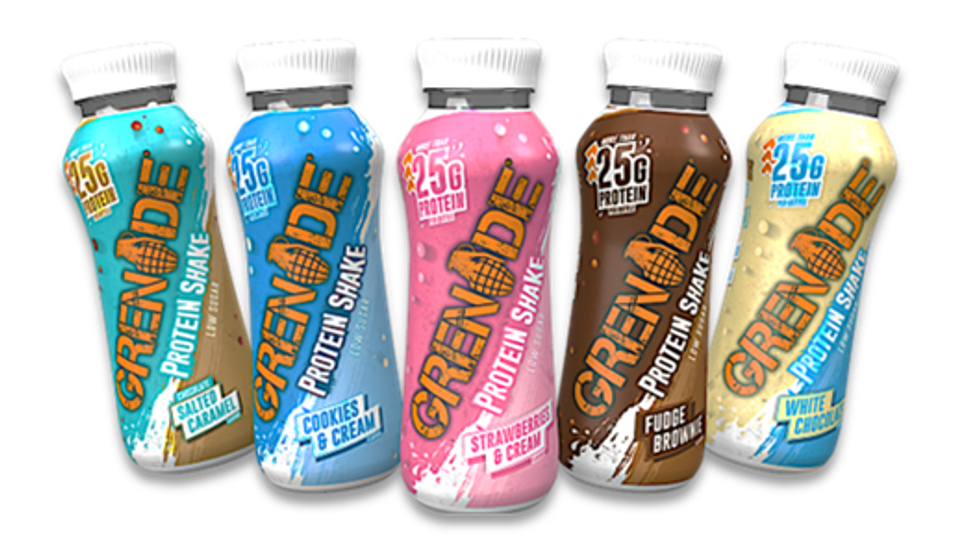
The reformulated range offers five flavours in 330ml bottles with over 25g protein, low fat and sugar content, and complete recyclability – addressing both nutritional and environmental concerns. At £2.75 RRP, Grenade positions itself in the premium segment whilst remaining accessible to mainstream consumers.
Strategic partnerships drive innovation
The collaboration between Müller Yogurt & Desserts and Myprotein shows how established dairy brands are leveraging sports nutrition expertise to capture growing demand. Their latest launch includes a ready-to-drink protein shake (25g protein per 385ml serving, £2 RRP), and convenient 'top hat' yogurts (20g protein per 180g pot, £1.89 RRP), both designed for on-the-go consumption.
“Over the last year we've been laser focused on continuing to optimise our health and nutrition range, and the unique partnership we launched with Myprotein last year has been key in this ambition,” states Richard Williams, CEO of Müller Yogurt & Desserts.
“Together, we’ve driven further growth within the dairy protein category by appealing to health-conscious consumers looking to support healthy lifestyles with products which are tasty and credible.”
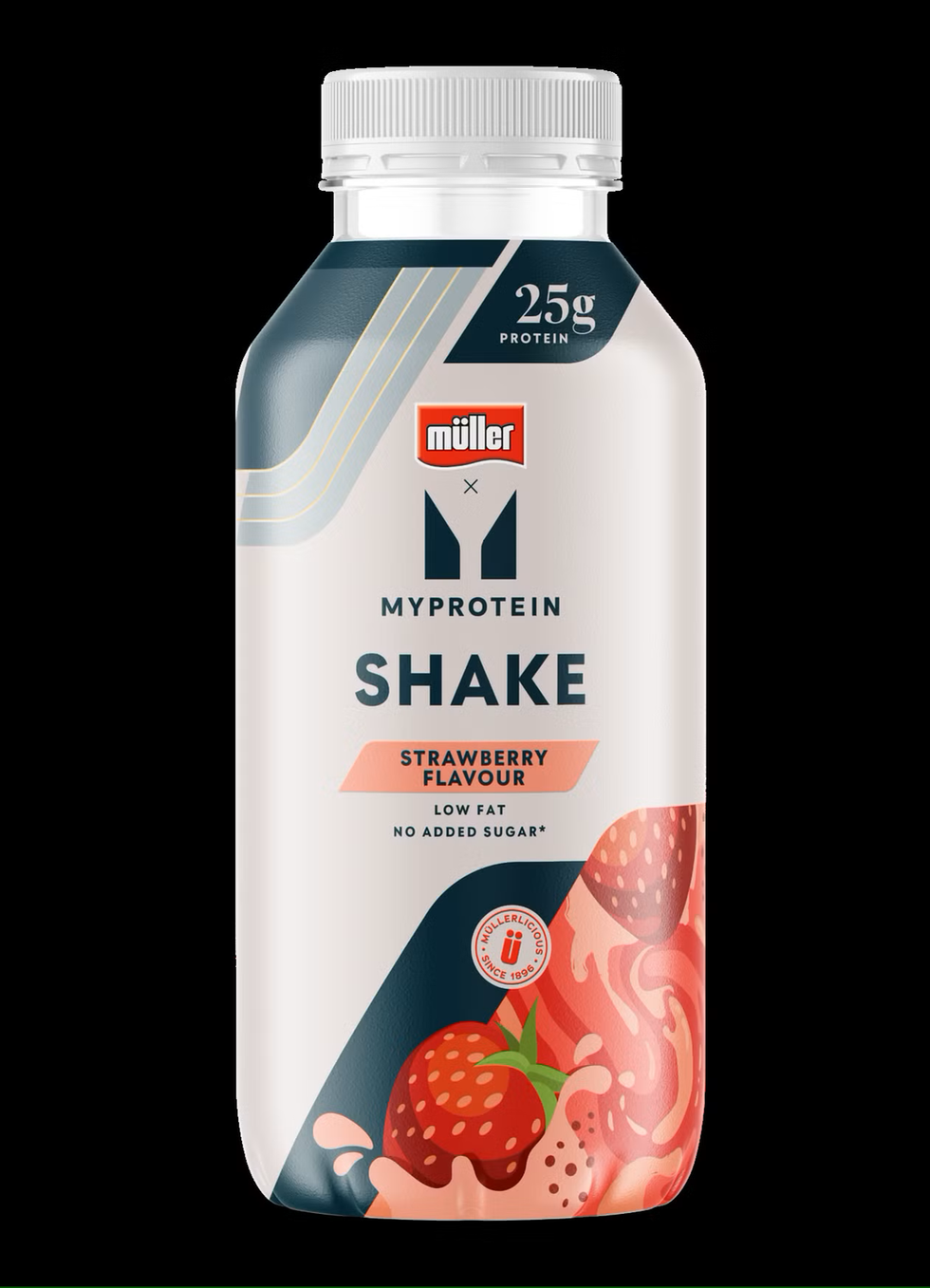
Neil Mistry, CEO of THG Nutrition, reinforces this positioning: “This latest launch gives shoppers even more high-protein choices – proving that active nutrition can be accessible, convenient, and genuinely enjoyable.”
The collaboration is being supported by a multi-million pound campaign including a branded van touring the country over 10 weeks, distributing more than 100,000 samples at almost 100 activation events.
The rise of dairy protein
The protein milk segment is witnessing significant innovation, with SuperNutrio introducing high-protein milk that delivers 100 per cent more protein and 80 per cent more calcium than standard cow's milk through smart filtration technology. This approach appeals to diverse demographics: fitness enthusiasts, families seeking to keep children fuller for longer, and older consumers requiring additional minerals.
The brand made a standout appearance at this year’s Great Yorkshire Show, taking home two awards in its first major competitive outing. Its High Protein Semi-Skimmed Milk earned a Silver Award in the Newly Launched Dairy Product category, while the High Protein Whole Milk secured Bronze, marking a significant achievement for the newcomer.
“These awards reflect our continued dedication to producing delicious, nutritious, and high-quality dairy for our customers,” Bill Randles, Managing Director at SuperNutrio, commented. “We’re especially pleased to see SuperNutrio receive recognition so soon after its launch, and it’s a testament to the passion and hard work of our team. We hope that this is just the start of things to come for what is a very exciting product proposition.”
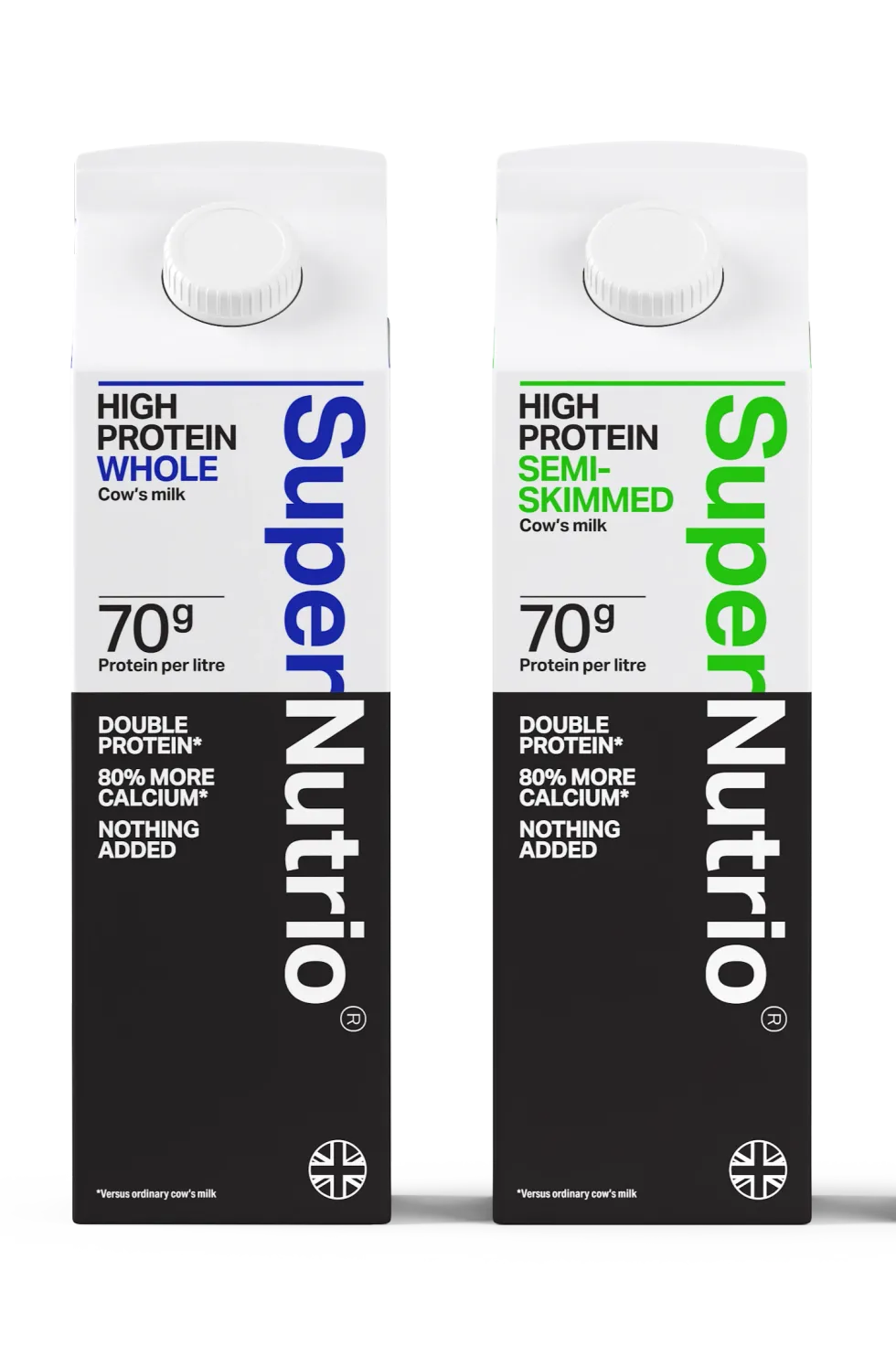
Lactalis UK & Ireland's extension of Lindahls protein range into convenience and wholesale channels demonstrates the category's mainstream potential. The £39 million RSV protein dairy market is attracting affluent and urban shoppers aged 45+, who exercise regularly and seek protein for weight loss, maintenance, and muscle recovery.
“Consumer interest in health and wellness has been rebounding since 2021 and functional food continues to drive growth and excitement within the category, with no end in sight,” explains Group Marketing Director Heloise Le Norcy-Trott. “As category experts this is the opportune moment for us to launch a great tasting protein cheese and milk range.”
The Lindahls range includes 250ml protein milk (£1.85 RRP) and 500ml collagen-enhanced variant (£3.25 RRP), specifically designed for convenience consumption. This pricing architecture allows retailers to capture both impulse purchases and planned protein supplementation needs.
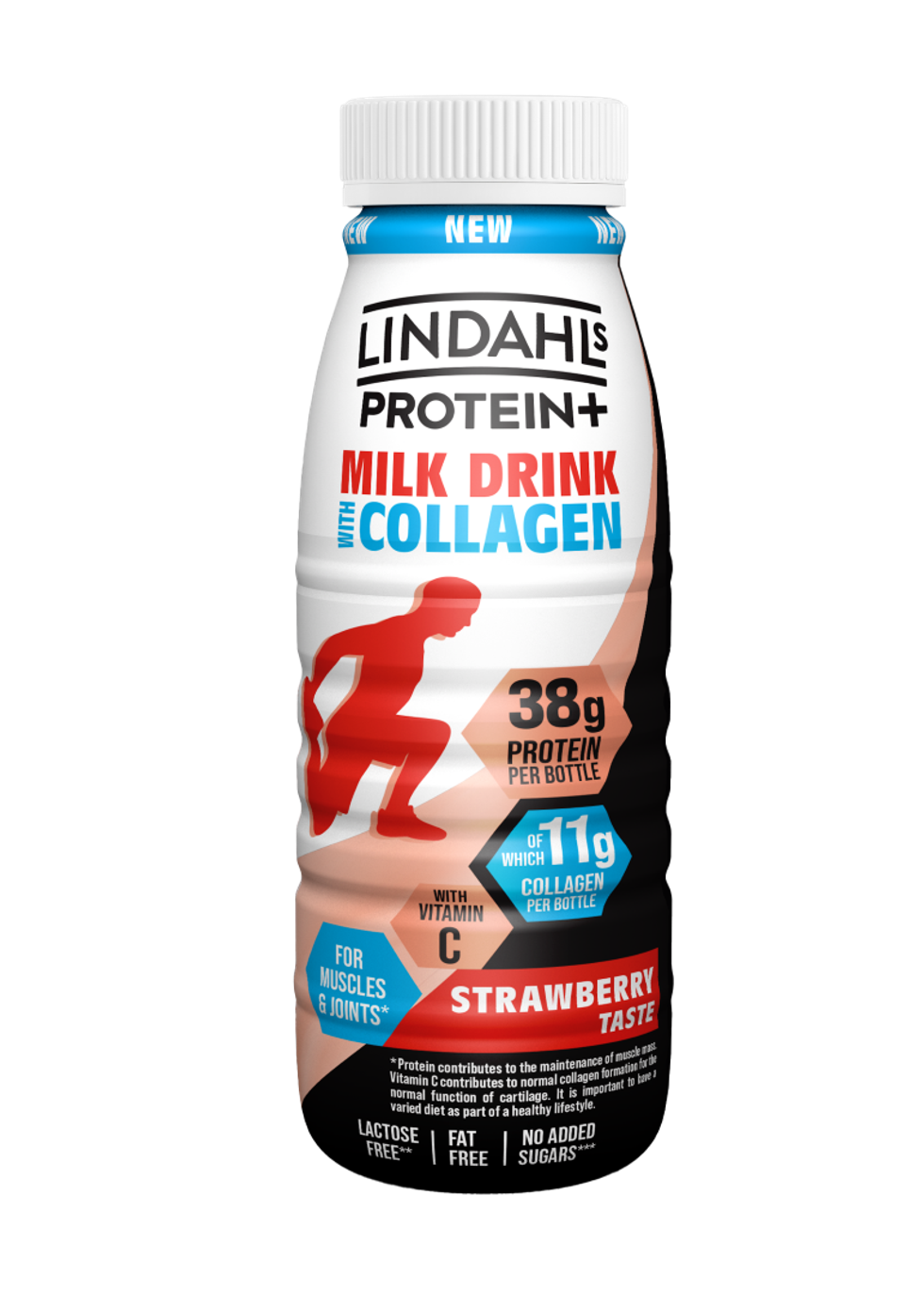
Lindahls' simultaneous launch of high-protein cheese variants represents a significant category expansion opportunity for convenience retailers. The protein cheese range includes Cottage Cheese (25g protein per 175g pot, £1.50 RRP), Gouda Slices (38g protein per five-slice pack, £2.00 RRP), and Greek Cheese (27g protein per 135g pack, £2.25 RRP). These products offer retailers the chance to capitalise on the cottage cheese category, which is currently dominated by own-label products accounting for 64 per cent of sales.
The cheese range's positioning as ‘better for you’ alternatives without taste compromise aligns with broader consumer trends towards functional foods that don't sacrifice flavour. Lindahls' advantage as the only brand present across protein cheese, milk, yogurts, and desserts categories positions it uniquely to drive cross-category sales and establish protein as a unifying theme across dairy fixtures.
With £2.5 million investment supporting the launch throughout 2025, retailers can expect sustained marketing support to drive consumer awareness and trial.
Breaking the artificial barrier
The protein snacking and breakfast landscape is undergoing a fundamental transformation as consumer demand for high-protein products reaches unprecedented levels. With protein bars, drinks, and powders now worth £225 million and growing at 24.2 per cent year-on-year [Circana, 52w/e 25.01.25], convenience retailers are witnessing a category evolution that's moving beyond artificial solutions towards natural ingredients whilst maintaining the functional benefits consumers crave.
TREK, a leading protein bar brand and one of the fastest-growing players in cereal and sports nutrition bars, has achieved what many thought impossible: creating high-protein, low-sugar bars using 100 per cent naturally sourced ingredients. The brand's groundbreaking High Protein Low Sugar range eliminates artificial sweeteners entirely, instead utilising chicory fibre and stevia leaf extract to deliver 12g-15g of plant-based protein whilst achieving a remarkable 47 per cent sugar reduction in their Biscoff variant.
“This isn't just an NPD story. It's a turning point for the protein bar category,” explains Alice Boardman, Marketing Manager at TREK. “Just as other food and drink sectors have had to reformulate in response to consumer demand, the same shift is happening in functional snacking – and we're proud to be leading it.”
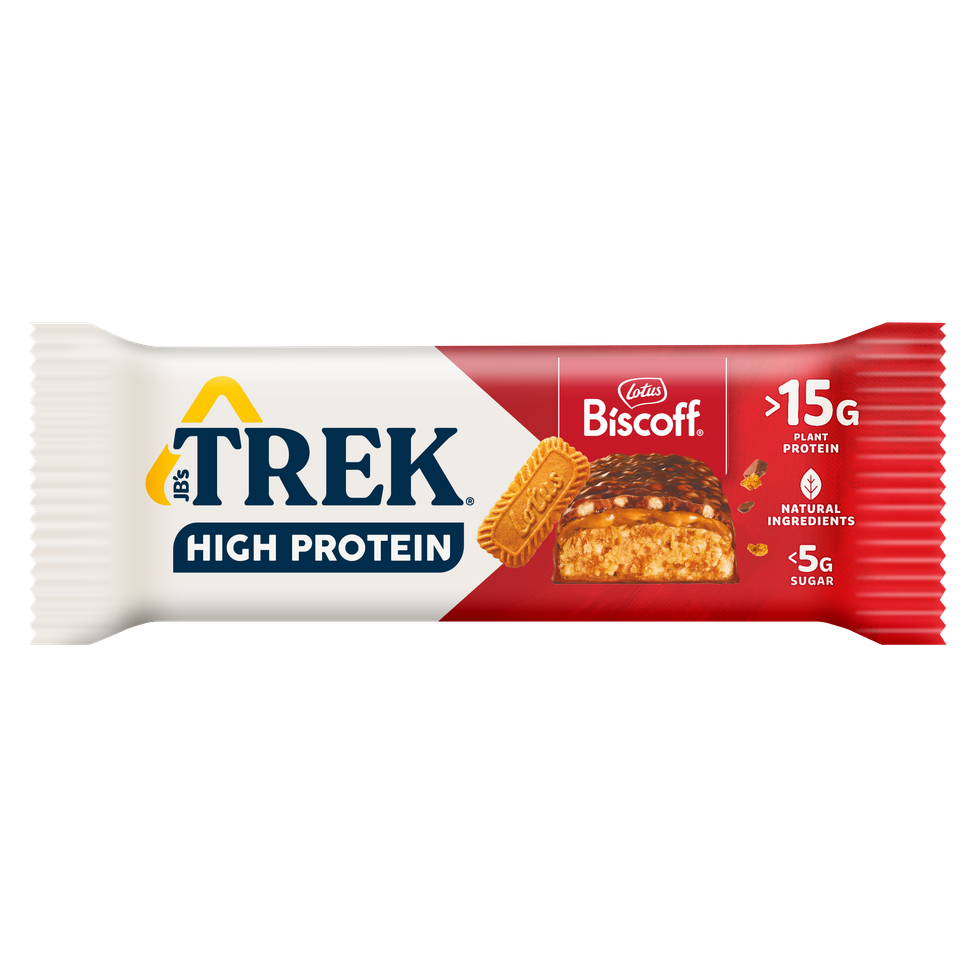
The timing couldn't be more strategic. Nearly two-thirds of Britons are actively reducing sugar intake, whilst almost half struggle to control their consumption. TREK identified that low sugar ranks as the number one attribute consumers seek in snack bars, alongside rising demand for natural ingredients. “Until now, shoppers have been forced to choose between function and quality. With this launch, they no longer have to,” Boardman continues.
Within the broader snack bars market, protein bars represent the fastest-growing segment, expanding by £37.6 million over the past two years [Circana, 52w/e 25.01.25]. TREK's momentum illustrates this growth trajectory, with sales increasing £4.9 million year-on-year to exceed £32 million RSV. The brand's TREK Power range has been particularly successful, growing 121.3 per cent year-on-year and selling eight bars every minute, with the standout TREK Power Biscoff generating £4.6 million in just one year.
Breakfast revolution
The protein trend is expanding beyond snacking into the breakfast category, with established players recognising the morning meal as the next frontier for functional nutrition. UFIT, leveraging its position as the UK's leading ready-to-drink protein brand, has launched its first-ever protein cereal range.
“Breakfast habits are changing – people want options that fit around real life, whether they're sitting at the kitchen table or grabbing something on the go,” states Angie Turner, of Lacka Foods. “With this launch, we're staying true to our inclusive approach, making it easier than ever for people to pack more protein into their day without compromising on flavour or breaking the bank.”
UFIT's cereal range delivers 15g of protein per serving across chocolate, toasted oats with honey, and caramelised biscuit variants. The pricing strategy reflects accessibility goals: £3.99 for boxed cereals and £1.50 for porridge pots, with promotional offers starting from just £1. This positioning enables retailers to capture both planned purchases and impulse breakfast solutions.
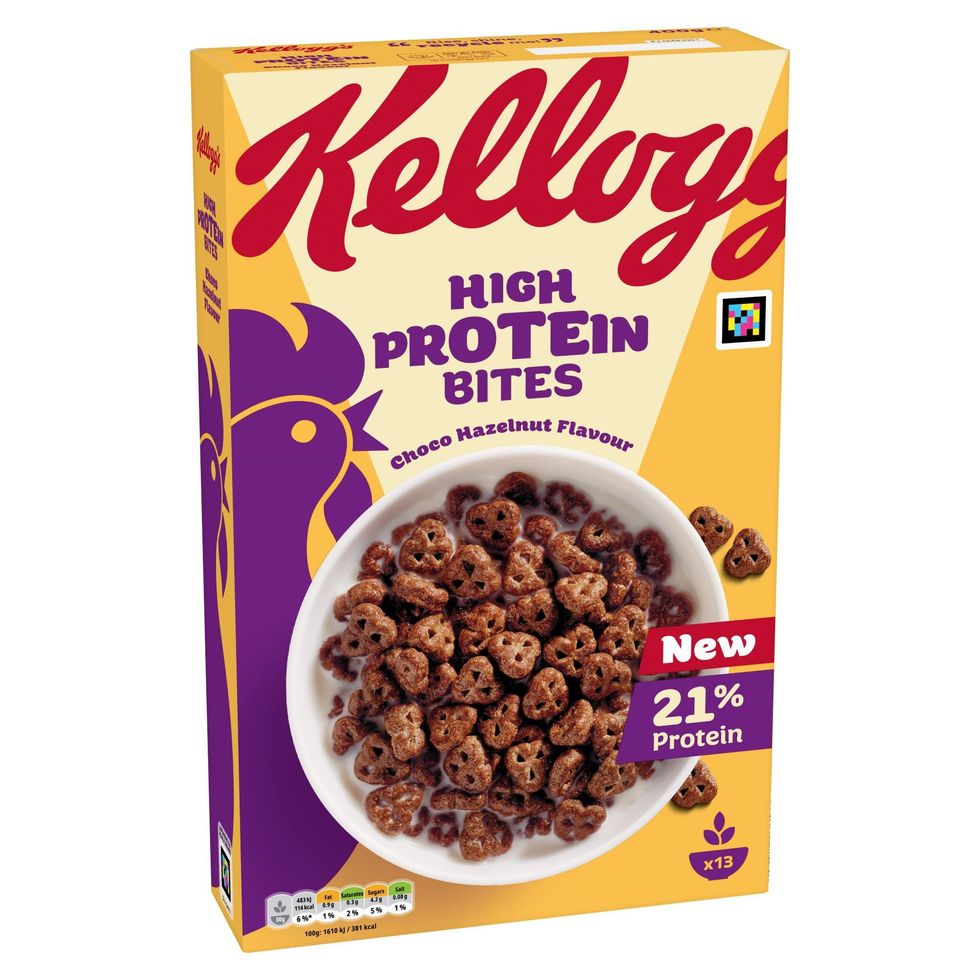
Kellogg's entry into high-protein cereals with its High Protein Bites demonstrates how mainstream breakfast brands are responding to shifting consumer preferences. The Choco Hazelnut variant contains 21 per cent plant-based protein, is high in fibre, and crucially, non-HFSS compliant – addressing both nutritional and regulatory considerations for convenience retailers.
“We understand the benefits of a protein rich breakfast to help kick start your day, and we know this is something our shoppers are looking for too,” explains Lejla Damon, Senior Activation Brand Manager. The timing aligns with market data showing protein callouts on cereal packaging have increased by 23 per cent in the past year, reflecting growing consumer awareness and demand.
At £3.50 RRP for 400g packs, Kellogg's High Protein Bites positions itself competitively whilst leveraging the brand's breakfast authority. The launch builds on Kellogg's £12 million ‘See you in the morning’ marketing campaign, ensuring strong consumer recognition when products reached convenience stores in July.
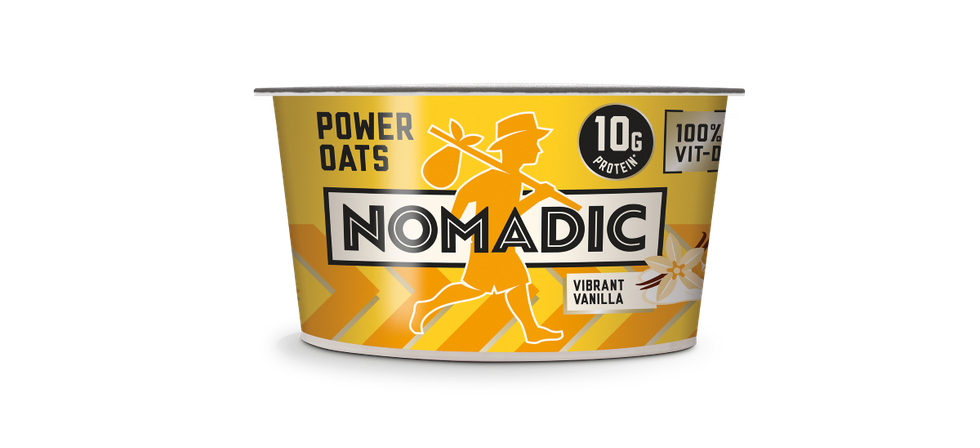
Nomadic's ‘Power Oats’ represents another evolution in protein breakfast products, combining yogurt with oats to deliver 10g protein alongside 100 per cent daily Vitamin D requirements and gut-friendly cultures. The range capitalises on Instagram-driven trends around overnight oats and gut health, appealing to health-conscious consumers seeking multifunctional nutrition.
“Combining 'power' with flavour is always paramount for us – as it is for our customers, who're busy on their feet and always on the go,” notes Michelle Bloom, Nomadic's Marketing Manager. “If the flavour doesn't match the power delivery in such products, then they'll just move on.”
The 150g pots at £1.50 RRP offer convenience retailers an accessible entry point for customers exploring protein-enhanced breakfast options.
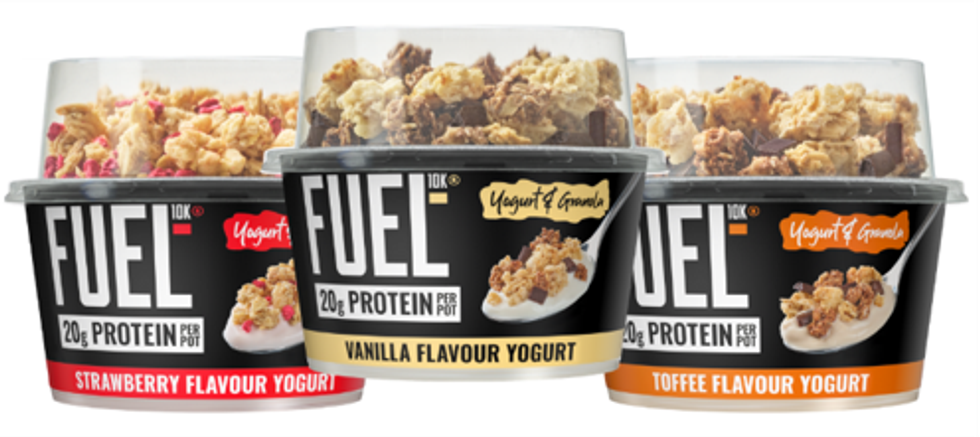
FUEL10K addresses the specific needs of time-poor consumers seeking convenient breakfast options with the launch of Yogurt & Granola Pots. The range combines the brand's granola with high-protein yogurt for the first time, delivering 20g of protein per pot across three flavours: Vanilla Yogurt & Chocolate Granola, Strawberry Yogurt & Raspberry Granola, and Toffee Yogurt & Chocolate Granola.
The launch capitalises on shifting consumer behaviour, with 25 per cent of shoppers now prioritising high-protein breakfast choices [Mintel, 2025].
The non-HFSS compliance of FUEL10K's pots, like Kellogg's High Protein Bites, demonstrates how brands are formulating products to meet both nutritional goals and regulatory requirements, providing convenience retailers with merchandising flexibility across different store locations.
Plant-based protein innovation
The protein category's evolution towards natural, minimally processed options is exemplified by the new snacking range from Windmill Organics under ProFusion. The brand has launched two distinct product formats: nut crunch mixes combining soybeans, cashews, and almonds (£2.99 RRP), and innovative organic protein cakes made from lentil and chickpea (£2.49 RRP).
“The protein category is currently witnessing significant shifts, particularly towards less processed, plant-based and health-oriented products, and our ProFusion brand is at the forefront of this growing demand,” explains Carmen Ferguson, Brand Manager at Windmill Organic. “With healthy snacking and protein in-take high on many people's agenda, we're delighted to bring this new snacking range to market which is well-suited for impulse purchases due to its convenience and portability.”
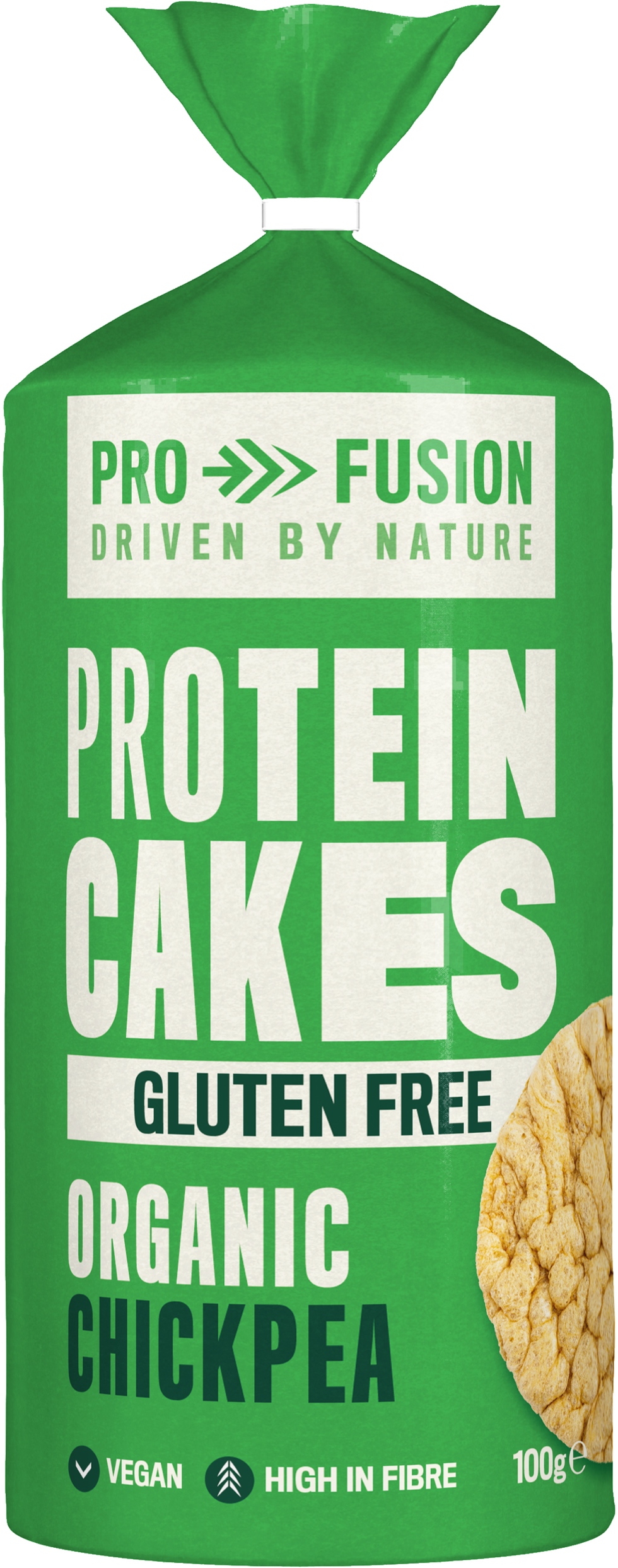
The ProFusion protein cakes represent particular innovation, with lentil variants providing 25 per cent more protein and nearly four times more fibre per serving than traditional rice cakes, whilst chickpea versions deliver nearly twice the protein and over two-and-a-half times the fibre. Both contain just four organic certified ingredients: red lentil flour, chickpea flour, rice flour, and salt, with no additives, preservatives, or fillers.
Ferguson continues: “All four new products have been designed specifically for busy, health-conscious consumers seeking nutritious, high-protein, minimally processed, on-the-go snacking options.”
The range's focus on clean ingredients without artificial additives, emulsifiers, or seed oils aligns with growing consumer demand for transparency in functional foods.
Meat snacks renaissance
The meat snacking category is experiencing a renaissance as brands innovate traditional formats to meet contemporary protein demands. With pork snacks representing the fastest-growing segment in savoury snacks at 17 per cent year-on-year growth, convenience retailers are witnessing increased consumer appetite for high-protein, low-carbohydrate alternatives that deliver authentic meat flavours often lacking in other protein options.
Golden Acre Foods' launch of Hungry Boar premium meat snacks into Booker Retail Partners earlier this year signals a strategic shift towards adult-focused, premium propositions within the traditionally mass-market category. The range, inspired by the medieval Polish snack Kabanos, targets consumers aged 25 and over with an active lifestyle, offering thin 'sticklers' of seasoned, smoked, and cured meat across four variants: Flamin' Piri Piri, Loaded Cheese, Chicken, and Pork.
“The meat snacking category is in need of innovation as there has been little new news in meat snacking over recent years,” explains Rebecca Cutter, Head of Marketing for Golden Acre Foods. “So we are really excited to be launching our new Hungry Boar range into Booker. There is a clear opportunity to bring a more adult meat snacking proposition into the category that is perfect for those looking for a tasty snack to fuel their busy lifestyles.”
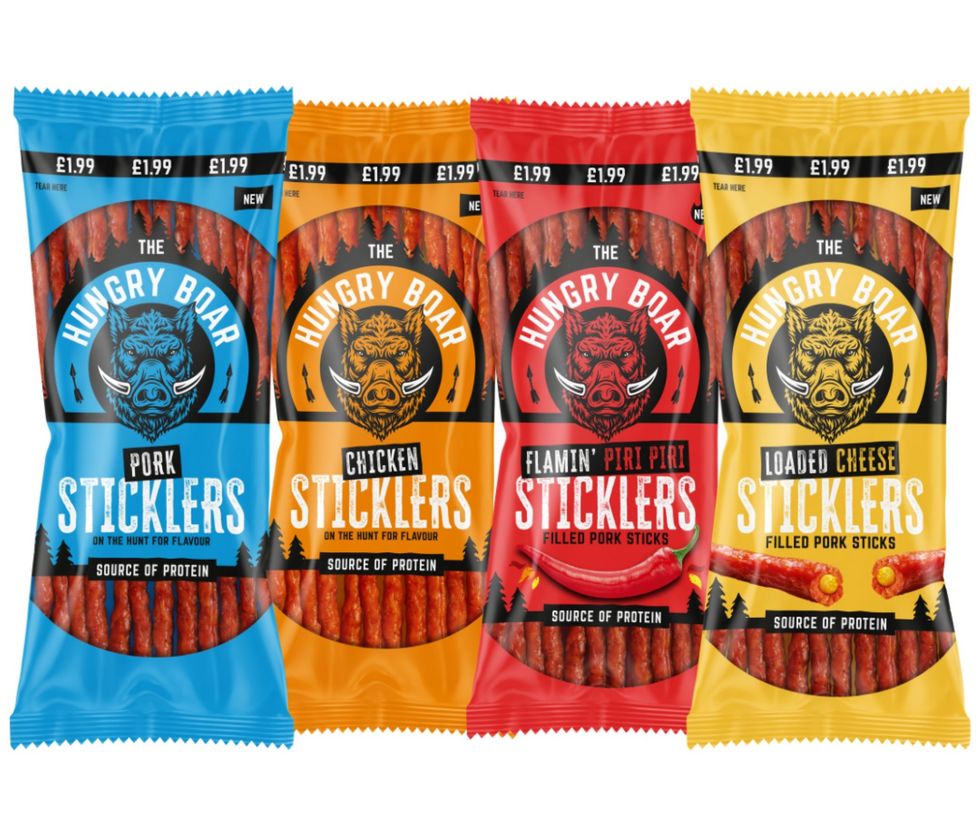
The premium positioning is reflected in both formulation and pricing, with over 150g of meat concentrated into every 100g of finished product, priced at £1.99 for price-marked packs. The range eliminates artificial colours and flavours, positioning itself as a natural protein source for on-the-go consumption and sharing occasions.
Tayto Group's Mr. Porky Puffs represent a significant format innovation designed to overcome traditional barriers to pork snack consumption. Recognising that some consumers are deterred by the texture and appearance of conventional scratchings, the brand has created a lighter, crunch-textured alternative that maintains the rich flavour profile whilst improving accessibility.
“Meat snacks have long been a go-to solution for consumers looking for a high protein snack, Mr. Porky Puffs is the unique alternative to more traditional scratchings. With all the flavour of a traditional scratching but a far easier bite,” states Matt Smith, Marketing Director for Tayto Group, who accounts for 65 per cent of the UK's pork snacks market.
The 25g format (£1.59 RRP) delivers 16g of protein with only 132 calories and 0.1g carbohydrates, making it particularly suitable for ketogenic diets and low-carb lifestyles. The gluten-free and allergen-free formulation broadens appeal beyond traditional demographics, whilst the reduced fat content compared to conventional scratchings addresses health-conscious consumers' concerns.
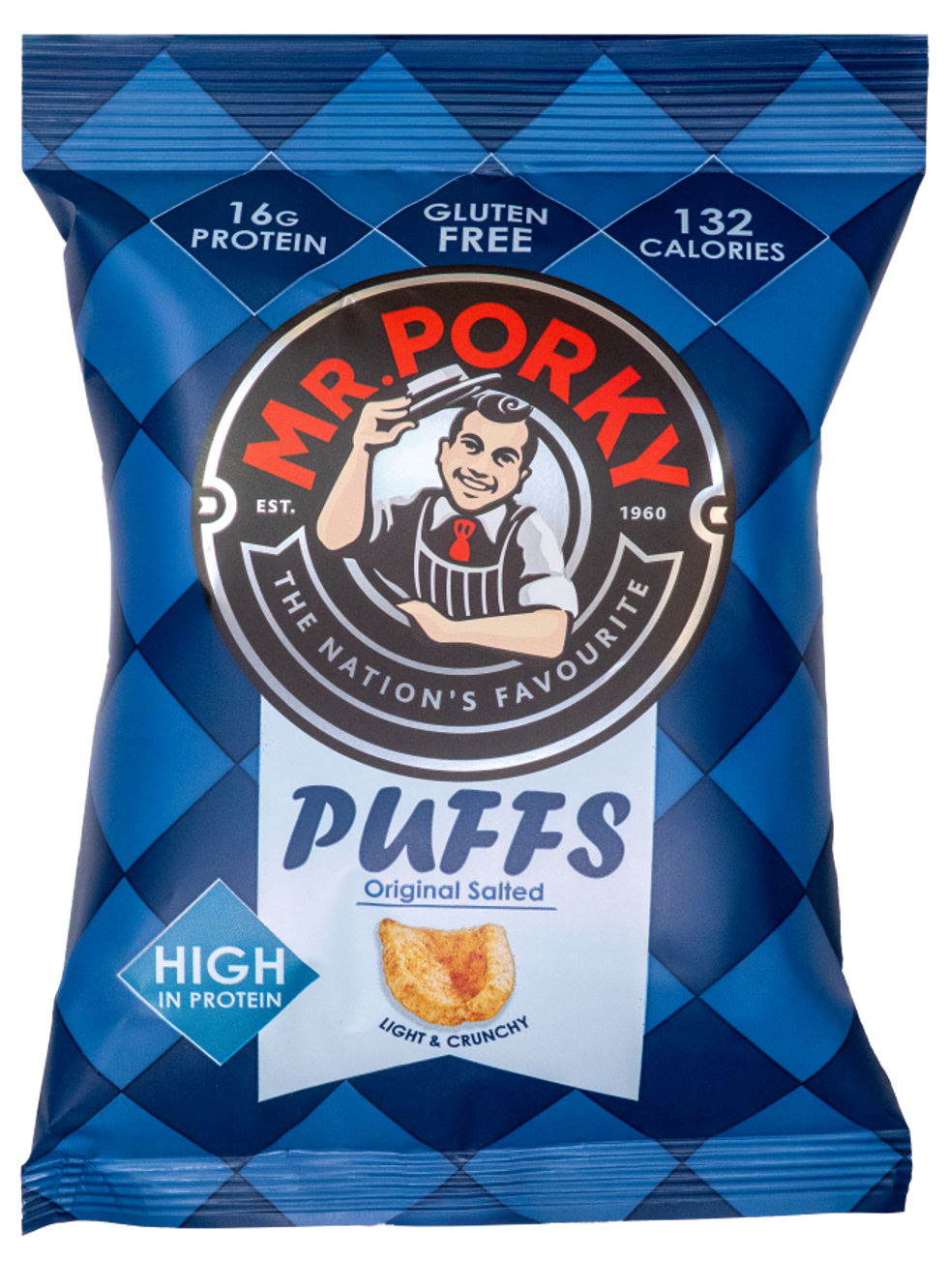
Both launches emphasise flexible placement strategies that extend beyond traditional snack aisles. Mr. Porky's clip-strip format enables cross-merchandising near energy drinks, soft drinks, lunch-to-go sections, and beer, wine, and spirits aisles, recognising the multiple consumption occasions for high-protein snacks. This approach allows retailers to capture impulse purchases across various customer journeys whilst maximising the VAT-free profit potential.
The premium positioning of Hungry Boar, supported by digital, social media, and influencer campaigns, suggests retailers can command higher margins whilst building category premiumisation. Cutter highlights this positioning: “Hungry Boar is a snack full of flavour and we're hugely confident the range will be popular among adults living an active lifestyle who are looking for a tasty meat kick to keep them satisfied for longer.”
The meat snacking evolution demonstrates how traditional categories can be revitalised through format innovation, premium positioning, and strategic merchandising. For convenience retailers, these developments present opportunities to drive incremental sales across multiple store locations whilst meeting growing consumer demand for convenient, high-protein nutrition.

